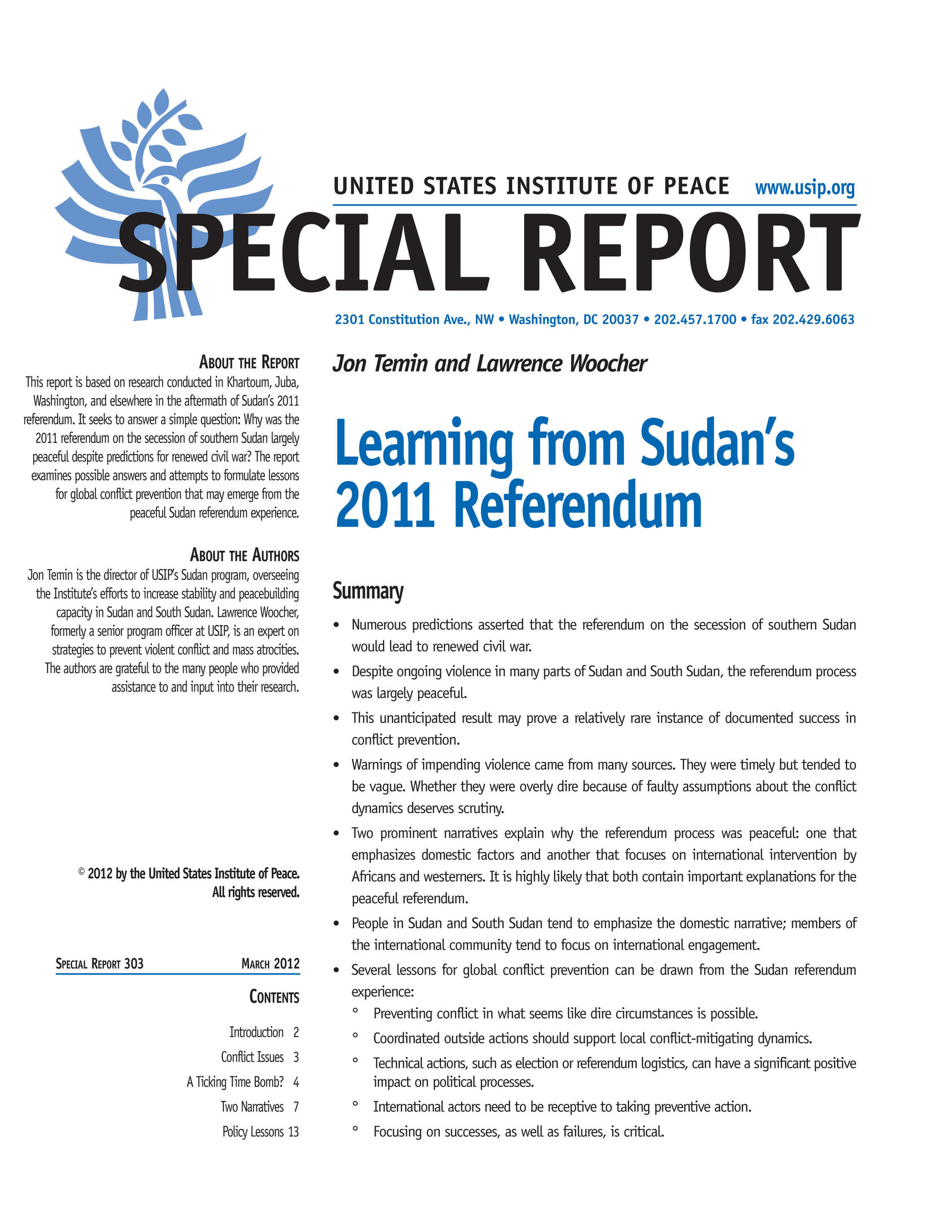Despite dire predictions of violence around the referendum on the secession of southern Sudan, the vote in 2011 was largely peaceful. Understanding why is key to future efforts to prevent conflict.

Summary
- Numerous predictions asserted that the referendum on the secession of southern Sudan would lead to renewed civil war.
- Despite ongoing violence in many parts of Sudan and South Sudan, the referendum process was largely peaceful.
- This unanticipated result may prove a relatively rare instance of documented success in conflict prevention.
- Warnings of impending violence came from many sources. They were timely but tended to be vague. Whether they were overly dire because of faulty assumptions about the conflict dynamics deserves scrutiny.
- Two prominent narratives explain why the referendum process was peaceful: one that emphasizes domestic factors and another that focuses on international intervention by Africans and westerners. It is highly likely that both contain important explanations for the peaceful referendum.
- People in Sudan and South Sudan tend to emphasize the domestic narrative; members of the international community tend to focus on international engagement.
- Several lessons for global conflict prevention can be drawn from the Sudan referendum experience:
- Preventing conflict in what seems like dire circumstances is possible.
- Coordinated outside actions should support local conflict-mitigating dynamics.
- Technical actions, such as election or referendum logistics, can have a significant positive impact on political processes.
- International actors need to be receptive to taking preventive action.
- Focusing on successes, as well as failures, is critical.
About the Report
This report is based on research conducted in Khartoum, Juba, Washington, and elsewhere in the aftermath of Sudan’s 2011 referendum. It seeks to answer a simple question: Why was the 2011 referendum on the secession of southern Sudan largely peaceful despite predictions for renewed civil war? The report examines possible answers and attempts to formulate lessons for global conflict prevention that may emerge from the peaceful Sudan referendum experience.
About the Authors
Jon Temin is the director of USIP’s Sudan program, overseeing the Institute’s efforts to increase stability and peacebuilding capacity in Sudan and South Sudan. Lawrence Woocher, formerly a senior program officer at USIP, is an expert on strategies to prevent violent conflict and mass atrocities. The authors are grateful to the many people who provided assistance to and input into their research.